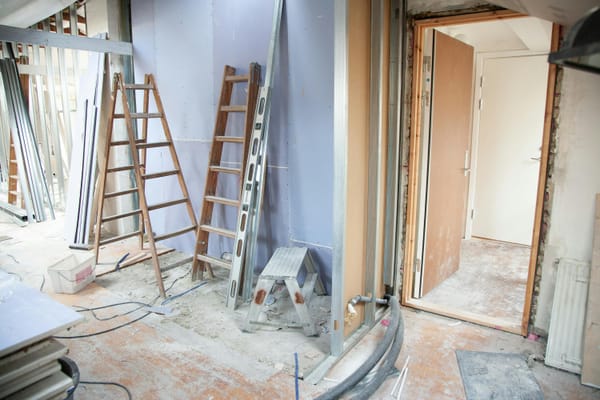The Real Cost of a New Roof in Miami-Dade: What to Expect in 2025

Replacing a roof in Miami-Dade County is more than a home improvement project—it’s a significant financial investment that protects your property against hurricanes, high humidity, and relentless UV exposure. With Florida’s strict building codes and fluctuating material costs, understanding the full scope of roofing expenses in 2025 is critical for homeowners and small business owners alike.
This guide offers a comprehensive breakdown of roofing costs in Miami-Dade, the factors that influence pricing, tips for budgeting, and how to ensure you get the most value for your investment.
Average Roof Replacement Costs in Miami-Dade (2025)
As of early 2025, the average roof replacement in Miami-Dade County ranges from $12,000 to $30,000, depending on the roofing material, size of the roof, pitch, and complexity of the job. Here’s a general breakdown based on common roofing materials:
| Roofing Material | Cost per Square Foot | Average Total Cost (2,000 sq. ft.) |
|---|---|---|
| Asphalt Shingles | $4.00 – $6.00 | $8,000 – $12,000 |
| Concrete/Clay Tiles | $10.00 – $15.00 | $20,000 – $30,000 |
| Metal Roofing | $9.00 – $14.00 | $18,000 – $28,000 |
| Flat Roof (TPO, PVC) | $6.00 – $9.00 | $12,000 – $18,000 |
| Slate Roofing | $20.00 – $35.00 | $40,000 – $70,000+ |
These numbers reflect market pricing in South Florida, where higher insurance premiums, permitting regulations, and labor shortages drive up costs compared to other regions.
Key Factors That Impact Roofing Costs
Several factors go into your total roof replacement cost. Understanding each helps you estimate more accurately and avoid surprise charges.
1. Roof Size and Design Complexity
A larger roof requires more materials and labor. Steeply pitched or uniquely shaped roofs (e.g., hips, valleys, or multiple elevations) increase labor time and safety risk, which adds to the cost.
2. Material Choice
Material pricing varies widely. While asphalt shingles are the most affordable, many roofing contractors in Miami recommend metal or tile roofs due to their superior performance in high-wind zones.
3. Underlayment and Waterproofing
Miami-Dade requires specific underlayments and fasteners to meet the region’s Notice of Acceptance (NOA) standards. Enhanced moisture barriers, double layers, or self-adhering membranes can increase costs by $1–$2 per square foot.
4. Tear-Off and Disposal
Removing the old roof and hauling away debris is typically $1,000–$3,000. Heavier roofs, like tile or slate, cost more to remove.
5. Permit and Inspection Fees
Miami-Dade County requires roofing permits, which can cost between $250 and $1,000, depending on the project's scope. Inspections are mandatory at various stages and may extend the timeline.
6. Structural Repairs
If roof decking, fascia, or trusses are damaged due to moisture or termites, repairs may be necessary before new roofing is installed—adding thousands to your total.
7. Insurance and Code Compliance
Homes in Florida's High Velocity Hurricane Zone (HVHZ) must meet rigorous codes, often requiring higher-grade materials and fasteners. This boosts both material and labor costs.
Commercial vs. Residential Roof Costs
While the material prices remain similar, commercial roofs—especially flat roofs—often require different installation techniques. Flat roofing systems such as TPO or modified bitumen are priced per square foot and may include added costs for tapered insulation, drainage systems, and rooftop HVAC units.
Many Miami FL roofers specialize in commercial installations and understand the complexities involved with flat roofs, parapet walls, and membrane welding.
Long-Term Value vs. Upfront Cost
While it's tempting to choose the cheapest option, long-term value should guide your decision:
- Asphalt shingles have the lowest upfront cost but often need replacing after 15–20 years.
- Metal roofs can last 40+ years with minimal maintenance.
- Concrete and clay tile roofs are expensive to install but hold up well under hurricane-force winds and salt air.
Think of your roofing project not just in terms of initial investment, but in durability, energy efficiency, and resale value.
How to Budget for a Roof Replacement in 2025
A new roof isn’t cheap—but with smart planning, you can avoid financial strain. Here are a few budgeting tips:
- Get Multiple Estimates
Aim for 3–5 quotes from licensed contractors. Make sure each one outlines labor, materials, and any contingencies. - Check for Financing Options
Many roofing companies offer financing or work with lenders to make monthly payments manageable. - Understand Warranties
Ask about both manufacturer warranties (materials) and contractor warranties (labor). The longer and more comprehensive, the better. - Factor in Additional Costs
Always plan for 10–20% over your base estimate to cover surprises like wood rot, code upgrades, or storm prep. - Ask About Insurance Discounts
Upgrading your roof to a wind- or impact-resistant system could qualify you for lower home insurance premiums.
Choosing the Right Contractor
Reputation, licensing, and local experience matter. Not all roofers are familiar with Miami-Dade’s code requirements, and hiring the wrong one can delay your project or result in failed inspections.
Use trusted resources like the Diamond Certified directory for Miami-Dade roofing contractors. Their listed companies are rated based on customer satisfaction, licensing, and quality of work—ensuring you hire professionals who meet Florida’s stringent requirements.
Questions to Ask a Roofer Before Signing a Contract
- Are you licensed and insured in Miami-Dade County?
- Do you have experience with the roofing material I want?
- How do you handle permitting and inspections?
- Can you provide local references?
- What’s your estimated timeline and warranty coverage?
Working with certified roofing contractors in Miami who are transparent and experienced gives you peace of mind throughout the entire process.
Final Thoughts
Roof replacement in Miami-Dade County is a serious investment, but one that pays off in peace of mind, property protection, and resale value. Whether you’re dealing with storm damage or planning a long-overdue upgrade, understanding the real costs—from materials and labor to code compliance and inspection fees—puts you in control of the project.
For homeowners and business owners alike, partnering with Miami FL roofers who are Diamond Certified ensures you’re working with professionals who know how to navigate Florida’s unique roofing landscape.



